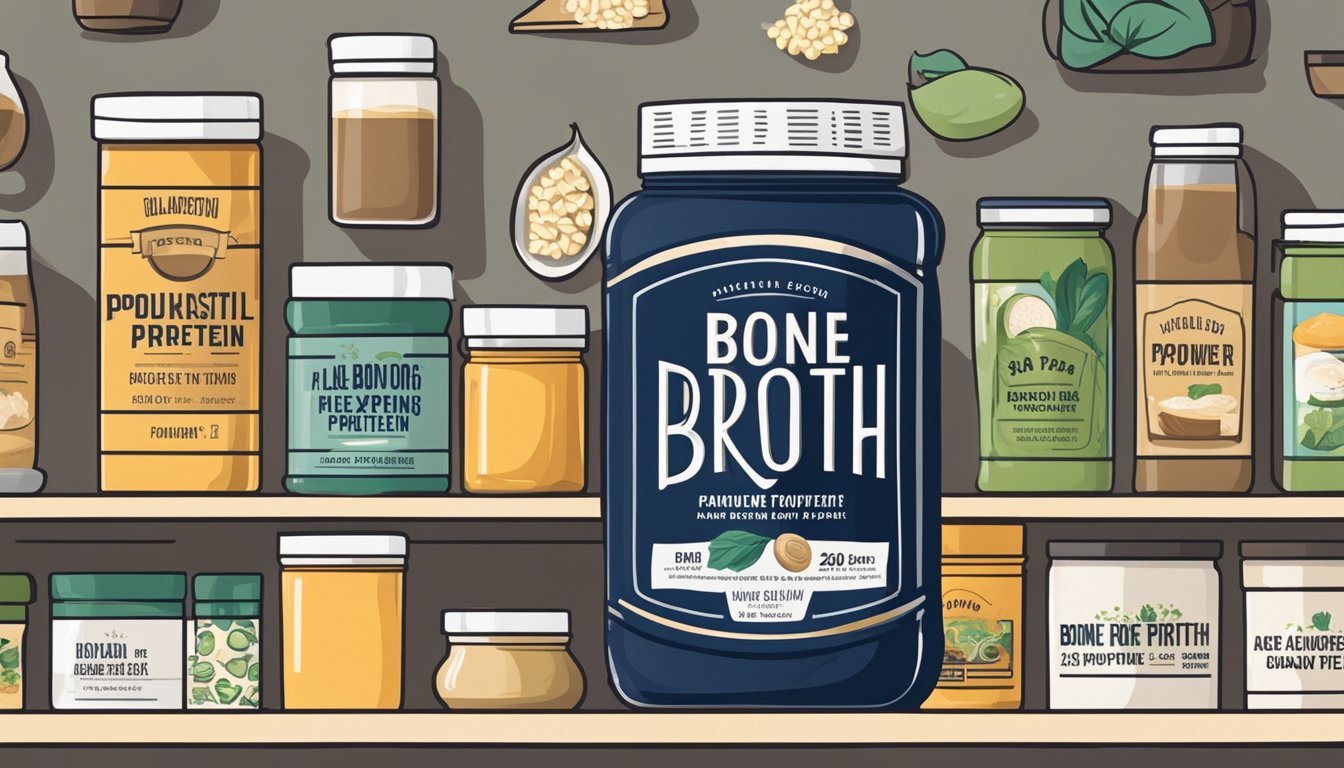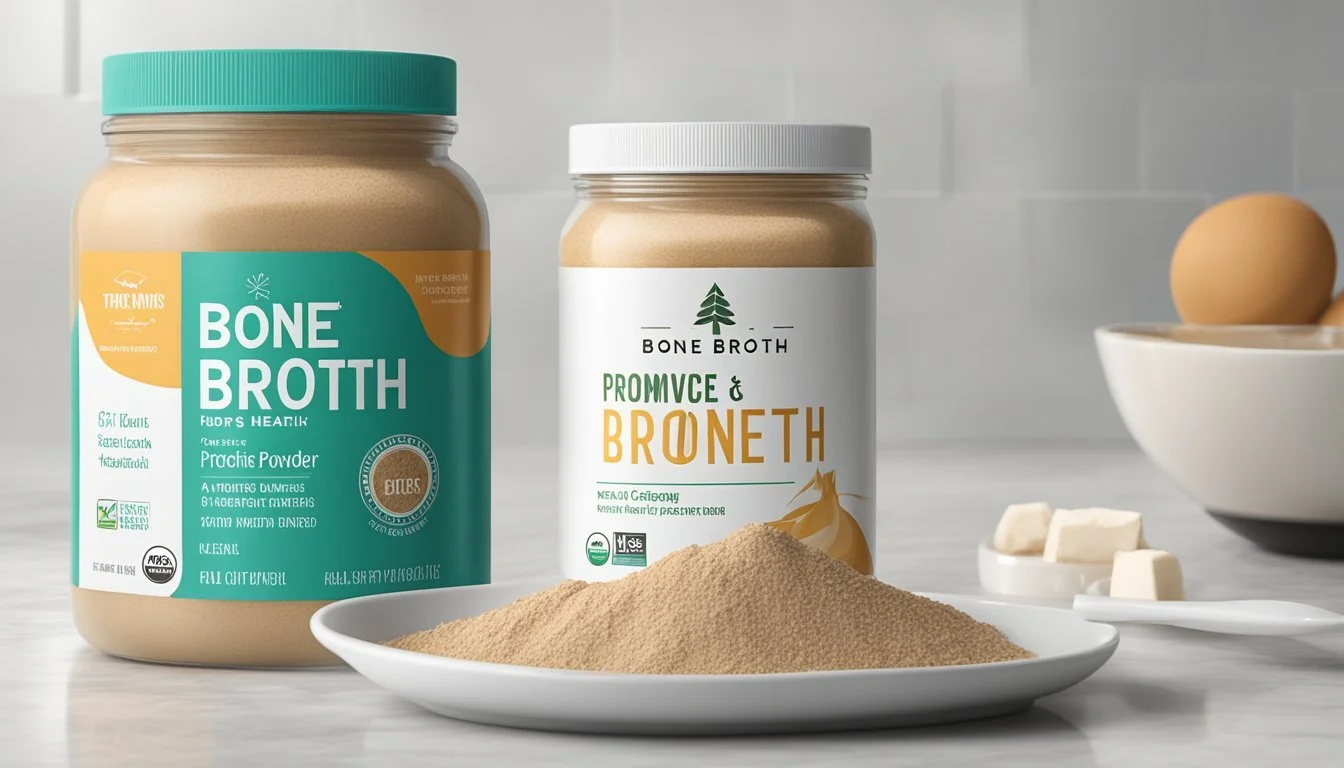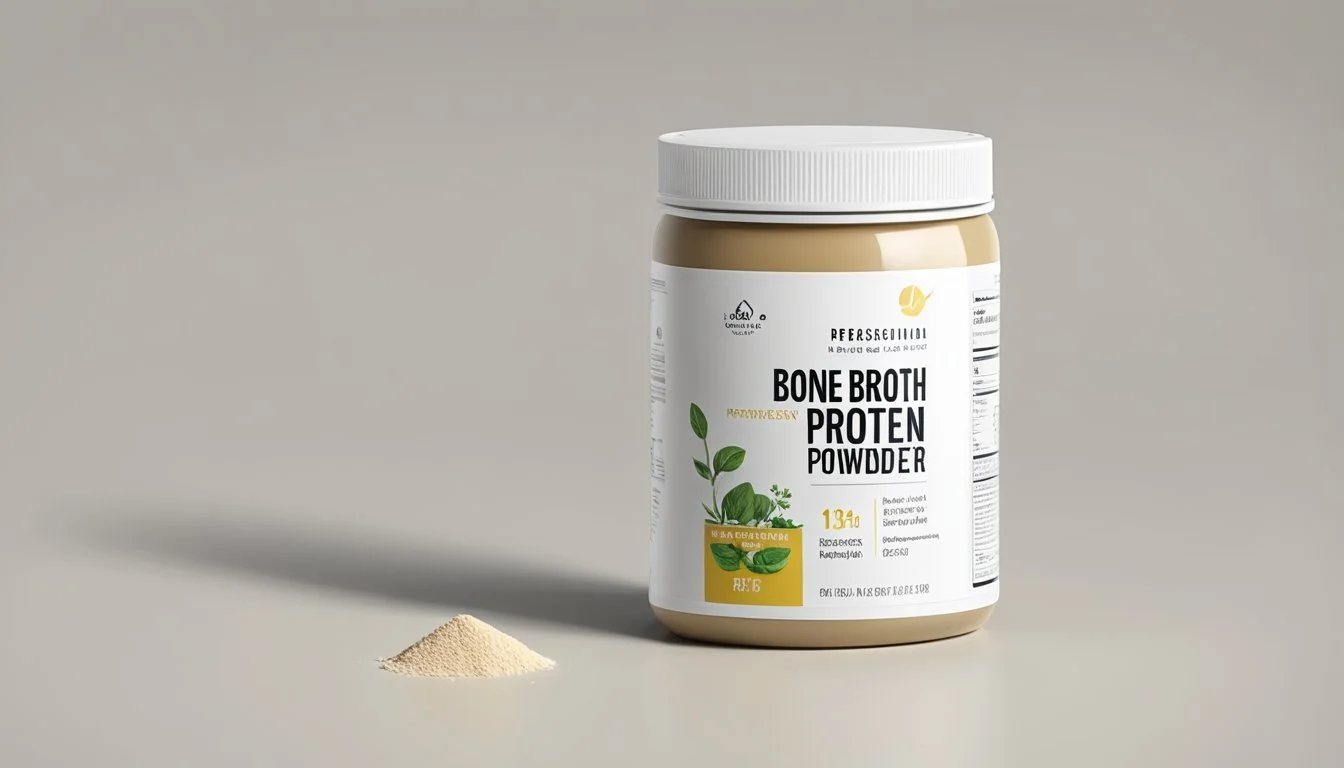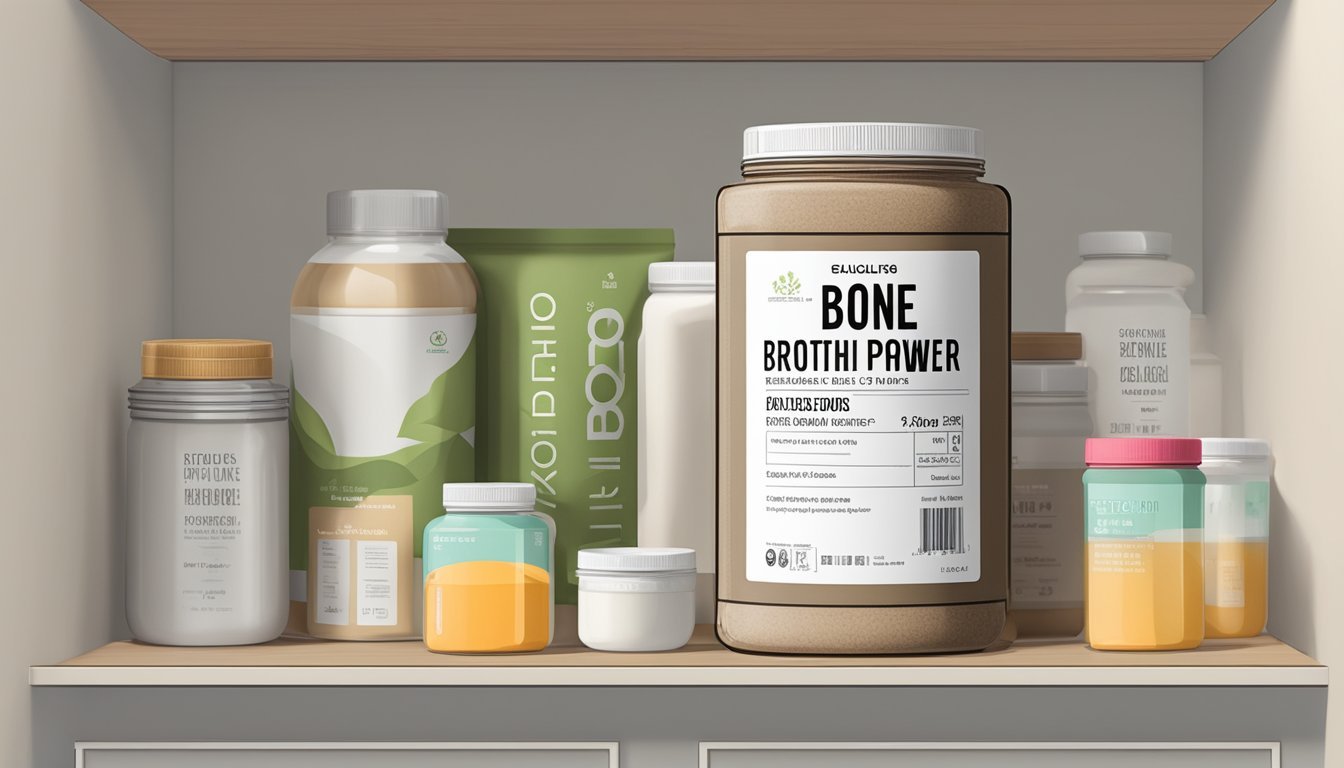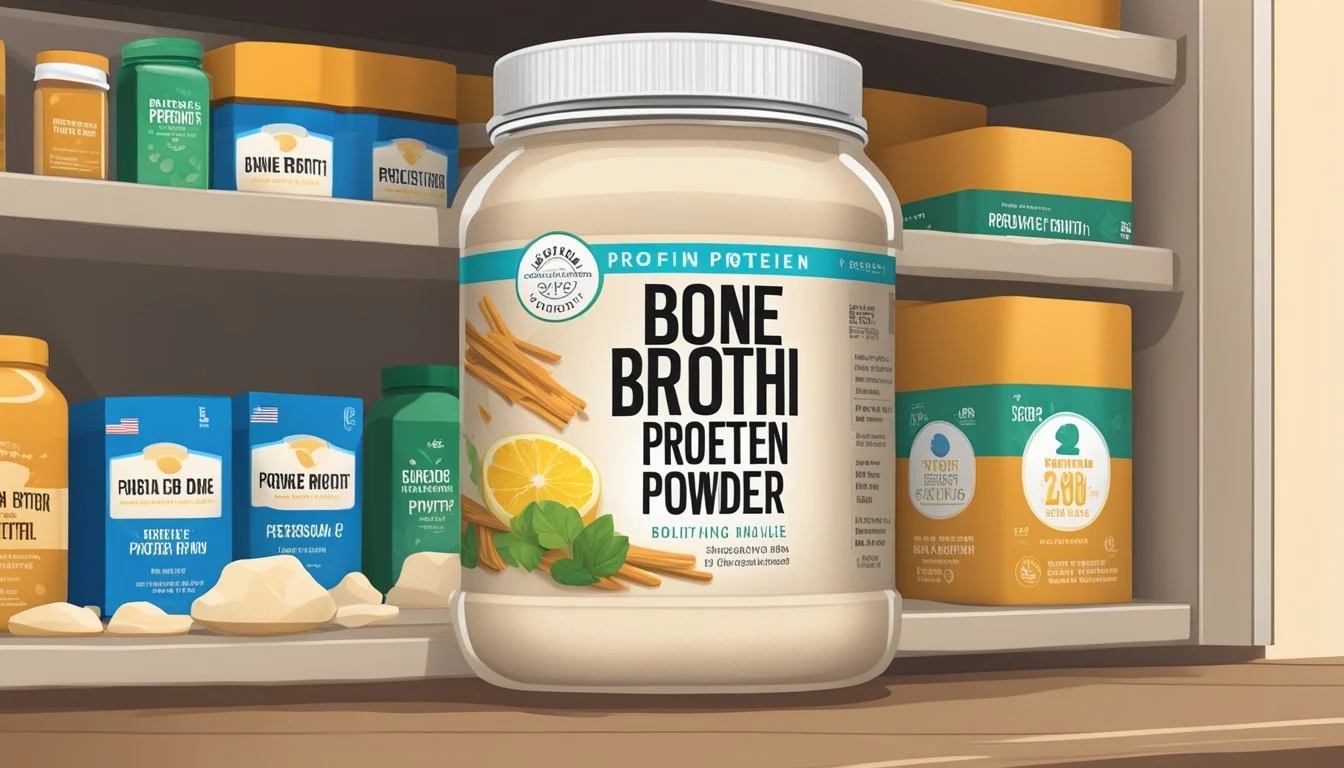How Long Does Bone Broth Protein Powder Last?
Shelf Life and Preservation Tips
Bone broth protein powder is a dietary supplement gaining popularity for its potential health benefits and convenience. It encapsulates the nutrients derived from bone broth, a traditional health elixir celebrated for its rich mineral content and amino acids that are believed to support various aspects of health. The powder offers a concentrated source of these nutrients in a form that's easy to integrate into daily routines. As with any supplement, consumers often question the shelf life and how long they can expect their bone broth protein powder to retain its nutritional value and effectiveness.
The longevity of bone broth protein powder, like most powdered supplements, is influenced by factors such as the quality of ingredients, the manufacturing process, and storage conditions. When stored properly in a cool, dry environment and in a sealed container to prevent moisture and contaminants, the powder can last a significant amount of time without losing its nutritional profile. Manufacturers typically provide a best-by date which serves as an effective guideline for ensuring consumers use it when it's at its best quality.
Understanding the nutritional stability of bone broth protein powder is also crucial. The process of converting bone broth into a powder form through spray drying is designed to preserve its nutrient content. However, over an extended period, the potency of these nutrients can diminish. It's important for users to be informed about proper storage recommendations as exposure to varying temperatures, light, air, and humidity can accelerate degradation and reduce the health benefits the powder is intended to provide.
Understanding Bone Broth Protein Powder
Bone broth protein powder is a dietary supplement derived from the traditional making of bone broth. This process involves simmering the bones, typically from beef, to extract proteins, amino acids, minerals, and other nutrients. The resulting broth undergoes dehydration to form a concentrated powder.
The protein content in bone broth protein powder is a major draw for consumers. It is rich in collagen, the most plentiful protein in the body, and is important for maintaining healthy skin, bones, and joints. Additionally, it provides a range of other amino acids that are essential for protein synthesis and overall health.
Here's a breakdown of the components typically found in bone broth protein powder:
Protein: Supports muscle repair and growth.
Collagen: Promotes skin elasticity and joint health.
Amino Acids: Including glycine and proline, which are vital for a healthy metabolism and immune function.
Minerals: Such as calcium and phosphorus for bone health.
Vitamins: Often includes B vitamins and vitamin D.
Fat content in bone broth protein is minimal, making it a suitable option for those on a low-fat diet. As for the nutritional aspect, bone broth protein powder serves as an enriched source of nutrients. It encapsulates the benefits of a bone broth in a convenient and versatile form.
It is important for consumers to differentiate between organic and conventional bone broth protein powders. Organic versions adhere to stricter regulations regarding the use of antibiotics and pesticides in the source materials, offering a cleaner alternative in terms of ingredient sourcing.
Health Benefits of Bone Broth Protein Powder
Bone broth protein powder offers a variety of health benefits, mainly due to its rich nutritional profile and bioactive compounds. It is utilized as a supplement to support joint health, weight management, and gut health.
Nutritional Value
Bone broth protein powder is a nutrient-rich supplement that provides a variety of minerals essential for overall health. It is particularly high in calcium, magnesium, and phosphorus, which are vital for maintaining strong bones. Moreover, the powder is a good source of amino acids like glycine and proline, which play critical roles in body functions.
Supporting Weight Loss and Fitness Goals
For those seeking to lose weight or enhance their fitness regime, bone broth protein powder can be a valuable supplement. With a low-calorie content and high protein levels, it aids in promoting satiety and may help in maintaining lean muscle mass.
Improving Joint Health and Inflammation
The components found in bone broth protein, such as glucosamine, chondroitin, and amino acids, contribute to supporting joint health. These substances are known for their role in rebuilding cartilage and reducing joint inflammation, potentially offering relief for those with joint-related discomfort.
Contributing to Gut Health and Digestive Support
Bone broth protein powder is believed to support gut health due to its collagen content, which may help strengthen the intestinal lining and combat issues like leaky gut syndrome. Amino acids such as glycine may aid in this restorative process, contributing to improved digestive health and a stronger immune system.
Make your life easier by ordering bone broth protein powder online; it's just a few clicks away!
Identifying High-Quality Bone Broth Protein Powder
When selecting bone broth protein powder, it is imperative to discern the source and manufacturing process of the ingredients to ensure maximum benefits without detrimental additives or unnecessary hormones.
Source and Quality of Ingredients
High-quality bone broth protein begins with the finest raw materials. Ingredients should come from chicken or beef sources, ideally those that are grass-fed to ensure natural nutrition without unnecessary additives. When choosing a product, look for organic bone broth protein, which indicates adherence to stringent organic farming standards, lowering the risk of ingesting hormones and pesticides that non-organic sources might contain.
Chicken Bone Broth Protein: Should originate from free-range chickens.
Beef Bone Broth Protein: Best sourced from grass-fed beef to ensure higher nutrient levels.
Understanding Processing Techniques
The processing methods used can significantly affect the final quality of bone broth protein powder. The ideal processing technique maintains the natural benefits of homemade bone broth while transforming it into a convenient powdered form. Look for products processed through gentle heat and dehydration techniques, which keep the nutrient profile intact. High-temperature treatment can degrade the beneficial components of the broth. Avoid products that have undergone excessive heat treatment, as they may have a diminished nutritional value.
Processing Methods to Consider:
Dehydration: Preserves nutrients effectively.
Low-heat treatment: Ensures a better taste and preserves amino acids.
Avoiding Additives and Hormones
Lastly, a paramount factor in distinguishing high-quality bone broth protein powder is the absence of unwanted additives, such as maltodextrin and lecithin, which may be used as fillers or emulsifiers in inferior products. Additionally, choose products without growth hormones to avoid potential health risks. It's advisable to read the label for a simple ingredients list, free from any artificial ingredients or chemicals.
Undesirable Additives to Avoid:
Maltodextrin: A common filler.
Lecithin: Often used as an emulsifier.
Hormones:
Growth Hormones: Not present in organic bone broth protein options.
Optimal Storage Practices
Proper storage can significantly influence the shelf life and quality of bone broth protein powder. The powder should be kept away from moisture and light to maintain its integrity until the expiration date.
How to Store Powder Form
When storing bone broth protein powder, it is essential to keep the product in an airtight container to shield it from moisture and preserve its quality. The container should be placed in a cool, dry location, away from direct sunlight or any source of heat, to prevent degradation. Manufacturer's packaging often provides adequate protection, but if it has been damaged or is not resealable, transferring the contents into a container with a tight-fitting lid is advisable.
Save time and hassle by getting airtight containers through our quick online ordering process.
Extending Shelf Life by Refrigeration
Refrigeration can extend the shelf life of bone broth protein powder. The refrigerator provides a stable environment, thwarting the effects of temperature fluctuations that can hasten the degradation process. Storing the powder in a sealed container within the fridge ensures that the product remains dry and is less susceptible to bacterial growth, a common concern that can occur when the product is left at room temperature.
Freezing Bone Broth Protein for Longevity
For long-term storage, freezing bone broth protein powder can be effective. Freezing not only extends the potential shelf life but also maintains the powder's nutritional value. Before freezing, divide the powder into manageable portions, using sealable freezer bags or containers to prevent freezer burn and make usage convenient. Label each portion with the freezing date to track how long it has been stored. When needed, one can easily retrieve and thaw a single portion without compromising the entire batch.
Deciphering the Shelf Life
Understanding the shelf life of bone broth protein powder is essential for maintaining its quality and nutrition. Proper storage is vital to ensure the protein powder's longevity.
Typical Shelf Life Expectancy
Bone broth protein powder often comes with an expiration date provided by the manufacturer. This date is an indicator of when the nutritional value of the product may start to diminish. Generally, most protein powders, including those derived from bone broth, have a shelf life that can range from six to 24 months under ideal storage conditions.
Unopened: Up to 24 months
Opened: Typically best consumed within six months
Factors Influencing Shelf Life
Several factors affect the longevity of bone broth protein powder:
Heat: Store the protein powder in a cool place to prevent degradation.
Moisture: Keeping the container in a dry environment is crucial as moisture can lead to spoilage.
Light: Exposure to light can reduce the shelf life. It’s best to store the powder in a dark area.
Packaging: After opening, ensure the powder is sealed tightly in its original container or an air-tight container to shield it from environmental factors.
Ingredients: The composition of the bone broth protein powder also plays a role; for instance, the presence of fats can reduce the shelf life due to potential rancidity.
By monitoring these factors, users can help to preserve the shelf life and maintain the nutritional value of bone broth protein powder.
Recognizing Spoilage and Signs of Deterioration
When examining bone broth protein powder for freshness, there are specific spoilage indicators to be aware of. These signs are usually evident in the product's appearance, texture, and odor.
Visual and Textural Changes
Visual indicators of spoilage in bone broth protein powder include:
Discoloration: Any shifts in color from the original powder.
Clumping: Moisture can cause the powder to become lumpy or cake together.
Texture can also be a telltale sign. The powder should maintain a consistent, fine texture. If the texture feels off, it may indicate that the product has been compromised.
Odor and Taste Indicators of Bad Quality
Smell is one of the most reliable indicators of spoilage:
Unusual odors: A sour or otherwise unpleasant smell is a strong warning that the powder should not be used.
As for taste, if the bone broth protein powder exhibits a:
Sour or disagreeable taste: It suggests that the product may have spoiled.
Consumers should trust their senses; if the product smells or tastes bad, it's best to err on the side of caution and discard it.
Safety and Usage Guidelines
This section provides important safety considerations and usage guidelines to ensure that bone broth protein powder is consumed safely and effectively as part of a dietary routine.
Safe Consumption Practices
Bone broth protein powders should have a shelf life between six to 24 months, as highlighted by the FDA's general guidelines on shelf-stable products. Consumers should check the best-by date marked by the manufacturer for optimal safety. Proper storage is crucial to prevent bacterial growth; protein powder containers must be kept in cool and dry places. If the container shows any signs of damage such as bulging, swelling, or leakage, or if the seal is compromised, the product should be discarded to ensure safety from potential bacteria such as pathogens that could lead to foodborne illnesses.
Incorporating Into Dietary Routines
When incorporating bone broth protein powder into one's diet, it is essential to treat it as a supplement within a balanced diet. Bone broth protein powder can be mixed into smoothies or stews for an added protein boost; for example, one could blend two scoops into a smoothie or dissolve it into the broth of a stew. The key is to maintain a variety in the diet and not to overly rely on protein supplements. Aligning with recommended dietary guidelines, individuals must be mindful of their overall nutritional needs, accommodating for lifestyle and possible dietary restrictions.
Preparing and Utilizing Bone Broth Protein Powder
Bone broth protein powder offers a convenient way to integrate the nutrients of liquid bone broth into one's diet. When prepared correctly, it can be an excellent addition to various recipes, enhancing flavor and boosting protein intake.
Mixing Instructions for Optimal Taste
To ensure optimal taste, the protein powder should be mixed thoroughly into hot water until it's completely dissolved. This can usually be achieved within about four minutes over medium heat. For a standard serving:
Measure two scoops of bone broth protein powder.
Stir into a large pan with hot water until no clumps remain.
For those desiring a richer flavor or a different taste profile, various flavors like chocolate or vanilla can be considered. Smoothies, soups, and stews can also benefit from the addition of unflavored varieties, which will not alter the intended taste of the dish.
Creative Recipes and Ideas
Bone broth protein powder is versatile and can be incorporated into multiple recipes:
Smoothies: Add a scoop to a fruit or green smoothie for a protein boost.
Soups: Stir it into soup bases to enrich the protein content.
Stews: Mix it with the liquid components when preparing stews.
For those keen on exploring new ideas, one can create a sweet potato hummus by adding unflavored bone broth protein powder to the recipe, maintaining the original flavor profile while enhancing the dish's nutritional value. Such creative incorporations showcase the powder's adaptability in both taste and application.
Comparing Bone Broth Protein to Other Proteins
When exploring the longevity and efficiency of different protein powders, it's essential to understand how bone broth protein stacks up against other prominent proteins in terms of source, composition, and suitability for various diets.
Bone Broth Protein vs. Whey Protein
Bone broth protein is derived from the slow-simmering of animal parts, which often includes bones, tendons, and ligaments. It typically contains various minerals and is a rich source of collagen, appealing to consumers interested in joint, skin, and gut health. Whey protein, in contrast, is extracted from milk during the cheese-making process and is highly regarded for its complete amino acid profile, making it a staple in muscle-building regimens.
Source:
Bone broth protein: Animal bones and connective tissues
Whey protein: Dairy milk (by-product of cheese-making)
Nutritional Value:
Bone Broth Protein: Rich in collagen, may offer joint and skin benefits
Whey Protein: Complete amino acids, beneficial for muscle growth
Whey protein can, however, contain lactose, which may cause digestive issues for those who are intolerant. In contrast, bone broth protein is generally lactose-free, potentially serving a broader audience including those with lactose intolerance.
Plant-Based Options like Pea and Rice Protein
Moving to plant-based alternatives, proteins such as pea and rice are popular among individuals who follow a vegan or vegetarian diet, or those who are allergic to dairy and egg-based proteins.
Pea Protein: Made from yellow split peas, it is rich in iron and arginine—key for heart and muscle health—and contains a favorable amount of amino acids, though not a complete profile like whey.
Rice Protein: Sourced from brown rice, this protein is generally considered hypoallergenic and easy to digest but needs to be combined with other proteins, such as pea protein, to ensure a full amino acid spectrum.
These plant-based proteins are lactose-free and provide options for those with dairy restrictions or those following particular dietary ethics. They offer an alternative nutritional value when compared to animal-derived proteins, accommodating a variety of health and dietary needs.
By examining their source, nutritional content, and dietary inclusivity, one can determine the best protein powder choice that aligns with personal health goals and dietary preferences.
Final Thoughts and Recommendations
When considering the longevity of bone broth protein powder, one should ensure proper storage to maintain its nutritional quality. The shelf life is generally influenced by factors such as packaging, storage conditions, and the presence of preservatives.
Storage Tips:
Store the powder in a cool, dry place away from direct sunlight.
Ensure the lid is tightly sealed after every use to prevent moisture and contaminants.
Health Considerations: Individuals should be mindful of the expiration date provided by the manufacturer, as using the protein powder past this date could compromise its nutritional benefits. Bone broth protein is a valuable addition to a balanced diet, contributing to the daily intake of proteins and nutrients essential for health.
Quality Check:
If the product shows signs of spoilage or an altered texture or smell, it should not be consumed. High-quality bone broth protein can support one’s nutrition by providing a concentrated source of protein that is easy to digest.
Recommendations for Consumption:
Include it in recipes such as mashed potatoes to enhance flavor and nutrient content.
One may consume bone broth protein regularly, however, it should complement a diet that includes a variety of nutrient sources.
In summary, consumers should prioritize proper storage and adhere to the expiration date to fully benefit from the nutritional profile of bone broth protein powders.

